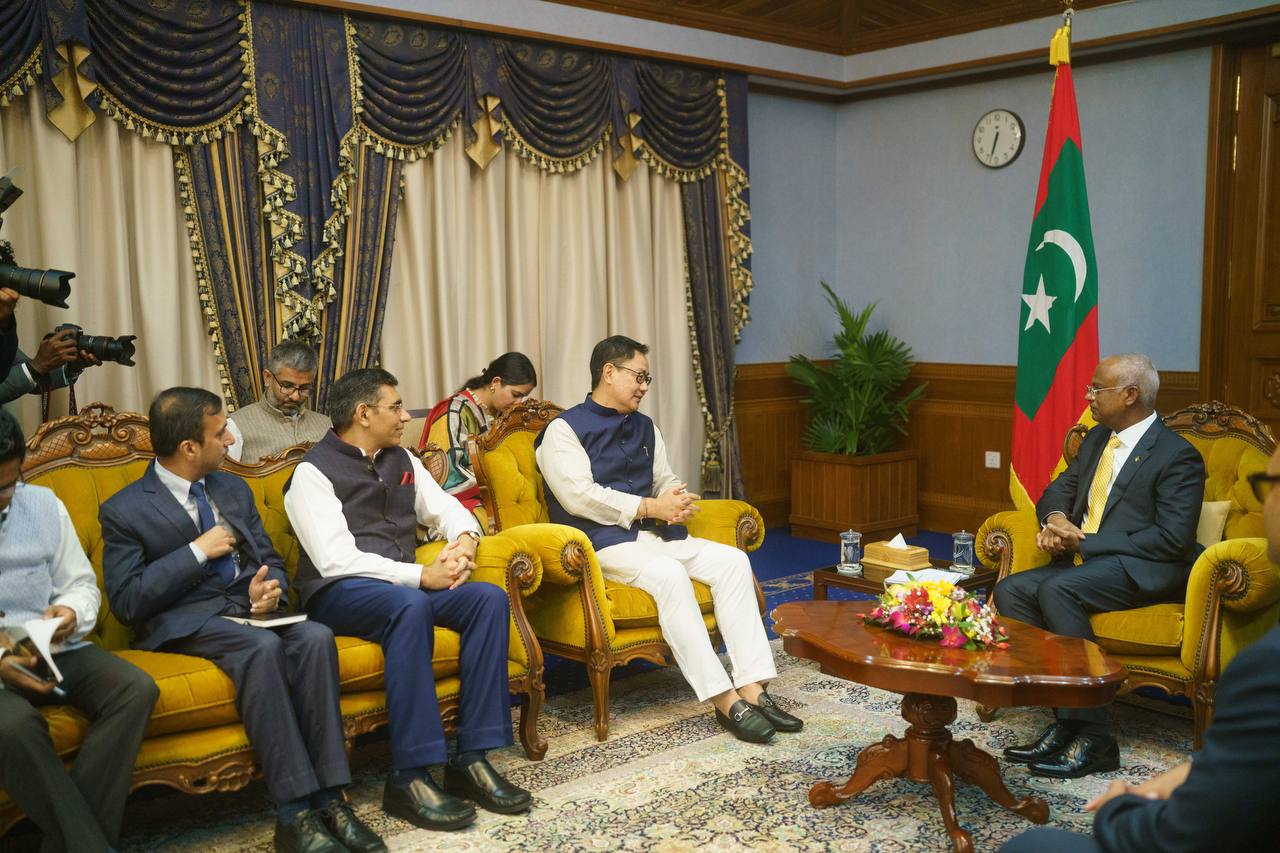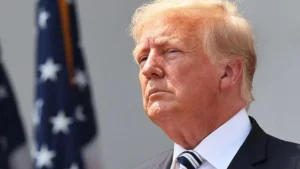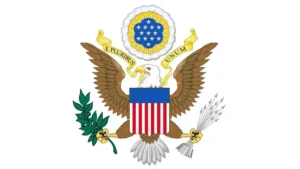Union Minister Kiren Rijiju has arrived in the Maldives to represent India at the swearing-in ceremony of Maldives President-elect Mohamed Muizzu. The ceremony is scheduled to take place on November 17 in the capital, Male.
Background on President-elect Mohamed Muizzu:
Mohamed Muizzu, a close associate of former Maldives President Abdulla Yameen, secured victory in the presidential runoff held in September, defeating the incumbent Ibrahim Mohamed Solih. Yameen’s presidency saw close ties with China, raising expectations of a potential shift in Maldives’ foreign policy.
India-Maldives Bilateral Relationship
Strategic Importance of Maldives: Maldives holds a crucial position as India’s key maritime neighbor in the Indian Ocean Region (IOR). It occupies a significant place in India’s ‘SAGAR’ (Security and Growth for All in the Region) vision and the ‘Neighbourhood First Policy.’
Minister Rijiju’s Arrival and Reception: At the invitation of President-elect Muizzu, Minister of Earth Sciences Rijiju arrived in the Maldives to attend the inaugural ceremony. He was warmly received by senior officials of the Ministry of Foreign Affairs and the Office of the President-elect.
Expectations for Bilateral Discussions: India is eager to engage in productive discussions with the new leadership of the Maldives to strengthen the bilateral relationship. High Commissioner of India to Maldives, Munu Mahawar, conveyed India’s anticipation of enhanced cooperation when he met President-elect Muizzu, delivering a congratulatory message from Prime Minister Narendra Modi.
Potential Shift in Foreign Policy
Post-Election Speculations: Muizzu’s victory has led to speculations about a potential shift in the Maldives’ foreign policy. While his predecessor pursued an India-first policy, observers suggest that Muizzu, a British-educated civil engineer, might adopt a more nuanced approach.
Economic Challenges and Foreign Policy Considerations: Facing a precarious economy with looming debt repayments, Muizzu may navigate foreign policy decisions carefully. Despite his party’s pro-China rhetoric, he might consider the economic challenges faced by neighboring countries, drawing parallels with Sri Lanka’s economic crisis.
Lessons from Sri Lanka: Observers point to India’s proactive assistance of USD four billion to Sri Lanka during its economic downturn, contrasting with China’s hesitancy. This included the Hambantota port, which China acquired through a 99-year lease as part of a debt swap. Muizzu could consider these dynamics as he outlines his foreign policy priorities.
Find More International News Here




 Trump Slaps 10% Global Tariff on All Imp...
Trump Slaps 10% Global Tariff on All Imp...
 U.S. Department of State Launches $200 M...
U.S. Department of State Launches $200 M...
 India Joins 100+ Nations in Strong Stand...
India Joins 100+ Nations in Strong Stand...








